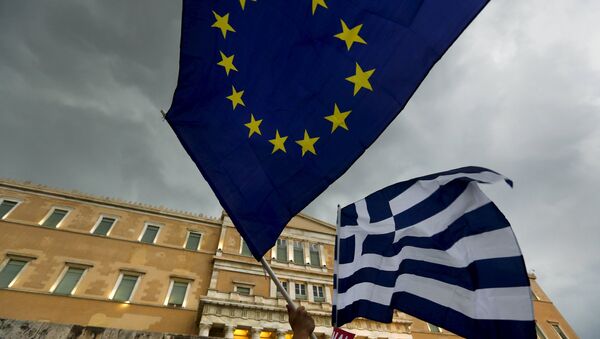Greece faces a default of more than 500 billion euros by 20 July, Greek economist and former employee of the Ministry of Economy, Ioannis Tsamurgelis, told RIA Novosti.
According to the economist, the country looms on the edge of default due to the association between Greece's debt to the IMF, the European Stability Mechanism and the European Central Bank.
“The government decided that the country will go bankrupt when the IMF loan was not paid. The event tripped automatic processes. ECM has already informed the IMF — the main creditor of Greece — which, in turn, decided and informed the Greek government that it will exercise its right to demand the return of capital when it sees fit,” said Tsamurgelis.
He reminded that on 20 July Greece will have to make a payment of about 2.5 million euros to the European Central Bank.
In this regard, the economist considers the result of referendum- a premature joy as he thinks that, “This is probably a unique case in history where citizens celebrated in the streets after the bankruptcy of the country and before the start of the liquidation when the banks are closed and the economy is collapsing,” he added.
Tsamurgelis suggests that there is an urgent need to negotiate with the creditors, despite a ‘No’ in the referendum.
“We need an immediate agreement with the EU to prevent the start of a process of ‘liquidation’, which will end with a ‘sudden death’ of the economy. Let us hope that the EU and the member states of the Eurozone will agree to such an agreement,” concluded the economist.


